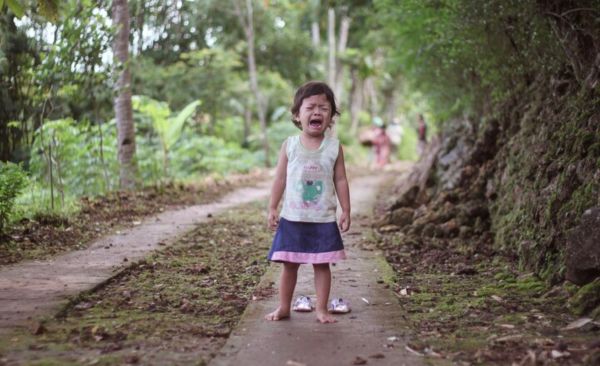By: Shawn English, with ChatGPT (-3.5), Open AI {https://openai.com}
 Disruptive behavior in children can create challenges for not only the child but also for their family, peers, and educators. Such behaviors, from defiance and aggression to attention-seeking actions, can disrupt the child’s educational progress, social relationships, and overall well-being. In recent years, therapy has emerged as an intervention for addressing disruptive behavior in children. This blog explores how therapy can help children who engage in disruptive behavior, offering various therapeutic approaches and their effectiveness for positive behavioral change.
Disruptive behavior in children can create challenges for not only the child but also for their family, peers, and educators. Such behaviors, from defiance and aggression to attention-seeking actions, can disrupt the child’s educational progress, social relationships, and overall well-being. In recent years, therapy has emerged as an intervention for addressing disruptive behavior in children. This blog explores how therapy can help children who engage in disruptive behavior, offering various therapeutic approaches and their effectiveness for positive behavioral change.
Understanding Disruptive Behavior in Children
Disruptive behavior in children includes a wide array of actions that interfere with rules and expectations. These behaviors can manifest as aggression, defiance, impulsivity, inattention, and hyperactivity. While occasional displays of disruptive behavior are common during childhood, persistent and more severe behaviors may indicate underlying psychological, emotional, or developmental issues.
Factors Contributing to Disruptive Behavior
Numerous factors can contribute to the development of disruptive behavior in children. These may include genetic and neurological differences, environmental stressors, trauma, family dynamics, parenting styles, and peer influences. Additionally, children with learning disabilities, attention-deficit/hyperactivity disorder (ADHD), or autism spectrum disorder (ASD) are at an increased risk of having disruptive behaviors.
Understanding the Role of Therapy
Therapy can provide a solution to these problems, offering an approach that addresses the causes of underlying factors contributing to such behaviors. By providing a safe and supportive environment, therapy creates opportunities for children to explore their emotions, develop self-awareness, and learn effective coping strategies.
One of the primary goals of therapy is to identify and address the root causes of disruptive behavior. This involves conducting thorough assessments to understand the child’s personal strengths, challenges, and experiences. Therapists will work with children and their families to explore factors such as family dynamics, peer relationships, academic stressors, trauma history, and underlying mental health conditions. By gaining insights into these factors, therapists can design interventions to target the specific needs of the child.
Therapy also equips children with essential skills for self-regulation, emotional management, and problem-solving.
Through techniques such as cognitive-behavioral therapy (CBT), play therapy, and behavior modification, children learn to recognize and challenge negative thought patterns, regulate their emotions, and make constructive choices. These skills not only help reduce disruptive behaviors but also empower children to navigate challenges more effectively in various environments, including home, school, and social settings.
Additionally, therapy can play a crucial role in creating positive social interactions and relationships for children. Many children who engage in disruptive behavior struggle with interpersonal skills, empathy, and communication. Therapy provides a structured way for children to practice social skills, role-play social scenarios, and create healthy peer relationships. By enhancing social and empathy skills, therapy helps children build meaningful relationships in their life.
Overall, therapy serves as a great way to make a positive change in children with disruptive behavior.
There are many different potential therapy approaches, each with their own benefits. These approaches include:
Cognitive-Behavioral Therapy (CBT)
 CBT is a widely used therapeutic approach that focuses on identifying and modifying negative thoughts, beliefs, and behaviors. In the context of disruptive behavior in children, CBT aims to enhance self-awareness, self-regulation, problem-solving skills, and emotional management. Through structured sessions, children will learn to recognize triggers for their disruptive behaviors and develop alternative, more adaptive responses.
CBT is a widely used therapeutic approach that focuses on identifying and modifying negative thoughts, beliefs, and behaviors. In the context of disruptive behavior in children, CBT aims to enhance self-awareness, self-regulation, problem-solving skills, and emotional management. Through structured sessions, children will learn to recognize triggers for their disruptive behaviors and develop alternative, more adaptive responses.
Play Therapy
Play therapy provides children with a safe and supportive environment to express themselves, explore their emotions, and develop coping strategies through play activities. Therapists utilize toys, games, art materials, and role-playing scenarios to encourage communication and emotional processing.
Play therapy is particularly beneficial for younger children who may have limited verbal skills or difficulty communicating their feelings. Through play therapy, children can externalize their inner experiences, work through conflicts, and develop problem-solving skills. Play therapy promotes emotional regulation, empathy, and social skills, which are essential for managing disruptive behavior.
Family Therapy
Disruptive behavior in children often occurs within the context of family dynamics and relationships. Family therapy involves the participation of family members in addressing conflicts, improving communication, and strengthening bonds. By exploring family patterns, roles, and interactions, therapists help identify underlying issues contributing to disruptive behavior and promote collaborative problem-solving.
Behavior Modification Techniques
Behavior modification techniques involve the use of reinforcement and consequences to encourage desired behaviors and discourage unwanted behaviors. These techniques may include rewards, positive reinforcement, extinction, and time-out procedures.
In the context of disruptive behavior, behavior modification techniques focus on identifying specific target behaviors, establishing clear expectations, and implementing consistent consequences. By reinforcing positive behaviors and providing immediate feedback, children learn to associate their actions with consequences and make appropriate choices.
Parent Training Programs
Parent training programs offer guidance and support to caregivers in managing their child’s disruptive behavior effectively. These programs typically provide education on child development, behavior management strategies, communication skills, and stress management techniques.
 By empowering parents with knowledge and resources, training programs enable them to create a nurturing and structured environment that leads to positive behavior change. Involving parents in the therapeutic process strengthens the relationship between the parent and child, and promotes collaborative problem-solving.
By empowering parents with knowledge and resources, training programs enable them to create a nurturing and structured environment that leads to positive behavior change. Involving parents in the therapeutic process strengthens the relationship between the parent and child, and promotes collaborative problem-solving.
Start Working With a Play Therapist for Children in Boulder, CO
Therapy plays a very important role in addressing disruptive behavior in children by addressing underlying issues, teaching coping skills, and fostering positive social interactions. Various therapeutic approaches, including cognitive-behavioral therapy, play therapy, family therapy, behavior modification techniques, and parent training programs, offer effective interventions for the unique needs of each child and family.
Through targeted interventions and collaborative efforts, therapy allows for children to have the ability to overcome challenges, build resilience, and thrive in their personal and social environments. Investing in early intervention and support systems can significantly support the well-being and future of children with disruptive behavior. You can start your therapy journey by following these simple steps:
- Contact us to request an appointment.
- Learn more about our therapists and play therapy
- Start managing disruptive behavior in more effective ways!
Other Services Offered with North Boulder Counseling
Our team understands that you may experience multiple mental health concerns at one time. This is why we are happy to offer support for a variety of mental health issues with both in-person therapy and online therapy across the state. In addition to play therapy, our team also offers depression treatment, anxiety treatment, postpartum anxiety treatment, postpartum depression counseling, perinatal support, counseling for women, counseling for men, parenting coaching, grief counseling, trauma treatment and EMDR, depression treatment, teen therapy, and LGTBQ counseling. Please visit our blog or our about us page to learn more helpful information.




